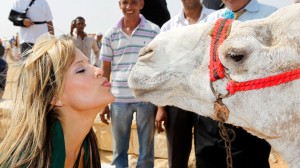 Hosts: Vincent Racaniello, Dickson Despommier, Alan Dove, Rich Condit, and Kathy Spindler
Hosts: Vincent Racaniello, Dickson Despommier, Alan Dove, Rich Condit, and Kathy Spindler
The complete TWiV crew reviews work on MERS-coronavirus, including serological studies in camels, production of an infectious DNA clone, and identification of an interferon antagonist.
Click arrow to play
Download TWiV 251 (71 MB .mp3, 98 min)
Subscribe (free): iTunes, RSS, email
Links for this episode:
- Stephan Chron dies (NY Times)
- Philip Marcus dies (NY Times)
- Philip Marcus on TWiV #197
- Ellen Fanning dies (news@Vanderbilt)
- Donald Low dies (CBC News)
- MERS timeline
- MERS-CoV seroepidemiology (Eurosurveillance)
- MERS-CoV neutralizing antibodies in camels (Lancet Inf Dis)
- MERS-CoV vaccine candidate (mBio)
- MERS-CoV infectious DNA (PNAS)
- MERS-CoV protein 4a is IFN antagonist (J Virol)
- Letters read on TWiV 251
Weekly Science Picks
Dickson – Scharf Photo
Kathy – Blaschka glass models (NY Times, Cornell)
Alan – Digital Public Library of America
Rich – Dengue virus life cycle animation
Vincent – Creative Live
Listener Pick of the Week
John – Last person to get smallpox (NPR)
Peter – SARS documentary (BBC)
Send your virology questions and comments (email or mp3 file) to twiv@microbe.tv


Re the choice between TCID50 and plaque assay. I do not have huge experience in these techniques, but I have tried to get undergraduates to do both these types of test in lab classes (for baculovirus – the students have no opportunity to infect themselves). TCID50 works well, but plaque assays have generally failed, so I guess that TCID50 is technically easier to set up, and to me appears to be less sensitive to operator error.
Loved the DENV life cycle link posted by Rich Condit. It would have been even more awesome if the could have described the formation of RC’s and their significance in the life cycle.
I just want to comment on this shakespearian phrase that Dickson said, i mean that’s not something original from shakespeare as are many things that are attributed to him, onde venes is latin or from any romance language, it’s from “¿de donde vienes? ” in spanish at least.